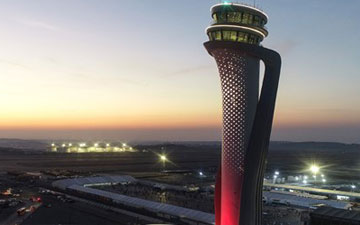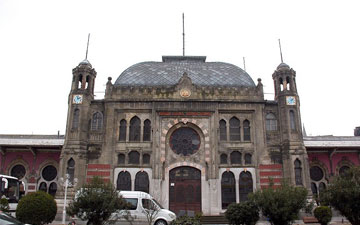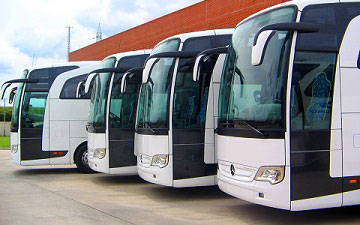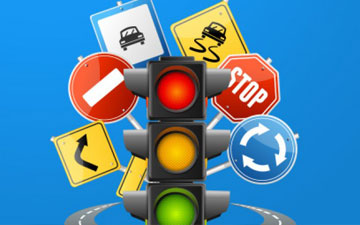Address: Fulya Mahallesi, Mevlüt Pehlivan Sokak, Yılmaz İş Merkezi No: 26 Kat: 6 Daire: 8 34394 Şişli / İstanbul
Phone: +90 212 299 99 80
Fax: +90 212 299 99 79
E-mail: info@ods.com.tr
HOW TO TRAVEL TO TURKIYE?
Airway Turkiye's centrally located land has an easy access from Europe, Asia and the States. Turkiye and the main center Istanbul receive flights from all around the world and is a stopover point for many airline companies. Although Istanbul is the main port for airline transport in Turkiye, Izmir, Ankara, Antalya, Dalaman airports with direct international flights and Bodrum, Canakkale, Denizli, Kayseri, Nevsehir, Trabzon, Adana, Gaziantep, Samsun with domestic flights through Istanbul are all reachable with airplanes.
Turkiye's centrally located land has an easy access from Europe, Asia and the States. Turkiye and the main center Istanbul receive flights from all around the world and is a stopover point for many airline companies. Although Istanbul is the main port for airline transport in Turkiye, Izmir, Ankara, Antalya, Dalaman airports with direct international flights and Bodrum, Canakkale, Denizli, Kayseri, Nevsehir, Trabzon, Adana, Gaziantep, Samsun with domestic flights through Istanbul are all reachable with airplanes.
Turkish Airlines (THY) is the main airline company that has access to many points in the world. Additional to Turkish Airlines there are some other private airline companies flying between Turkiye and European cities such as Anatolian Airlines and Onur Airlines.
Most international airlines have regular flights from all major cities of the world to Turkiye's international airports.
Railway
Railway transportation is available from Sofia, Belgrade, Bucharest and Budapest (connections from Munich and Vienna) to Sirkeci Train Station in Istanbul.
There are two main stations in Istanbul: Sirkeci Station on the European and Haydarpaşa Station on the Asian side. These historic station buildings are nostalgic gateways to the city. Both stations are well equipped with restaurants, newspaper kiosks, waiting rooms and ATM'S.
Haydarpaşa Station on the Asian shore is connected to the European shore by ferry to Karaköy. Sirkeci is a short walk or taxi ride from Eminönü ferry terminals. Suburban trains also run from Sirkeci and Haydarpaşa stations. Trams to Sultanahmet run past Sirkeci Station and city bus services are also available.
Road The road network throughout Turkiye is extensive with motorways, dual carriageways and numerous three-lane highways. Drivers bringing in cars to Turkiye must show their registration documents and driving license at the point of entry. If arriving from Europe, visitors must have a Green Card (available from insurance companies) as well as appropriate insurance. Driving is on the right. Seat belts are mandatory and driving after consuming alcoholic drinks is prohibited. The speed limits are 120km/h on motorways, 90km/h on main roads and 50km/h in towns.
The road network throughout Turkiye is extensive with motorways, dual carriageways and numerous three-lane highways. Drivers bringing in cars to Turkiye must show their registration documents and driving license at the point of entry. If arriving from Europe, visitors must have a Green Card (available from insurance companies) as well as appropriate insurance. Driving is on the right. Seat belts are mandatory and driving after consuming alcoholic drinks is prohibited. The speed limits are 120km/h on motorways, 90km/h on main roads and 50km/h in towns.
Northern Route: Belgium – Germany – Austria – Hungary – Romania – Bulgaria – Turkiye
Southern Route: Belgium – Germany – Austria – Italy – with ferry to Turkiye
Intercity Coach Services
Coach services to all parts of Turkiye are reliable, reasonably priced and convenient. Istanbul's International Bus Terminal located in Esenler, about 10 km from the city center, serves all international and domestic lines. Most of the leading intercity coach companies provide free shuttle services from central Istanbul to the terminus.
Sea
Several foreign shipping companies have regular services to the ports of Trabzon, Samsun, Istanbul, Dikili, Izmir, Çesme, Kusadasi, Bodrum, Marmaris, Antalya, Alanya, Mersin and Iskenderun. There are also several car ferries for tourists who wish to take their cars while sightseeing: Venice, Ancona, Brindisi, Bari, Istanbul, Izmir, Cesme, Kusadasi, Marmaris, and Antalya.
WHAT IS THE EASIEST WAY TO MAKE PAYMENTS IN TURKIYE?
You may find ATMs almost at every street corner. The international credit card Visa is the most practical. Euros and US dollars are mostly accepted and there are many money exchange offices in the cities and tourist areas. Traveler's checks are perhaps less practical in the sense that you need to queue at the bank.
HOW CAN WE COMMUNICATE WITH PEOPLE IN TURKIYE? Turkish is not an easy language to learn and unless you have special interest it will not be necessary for basic communication throughout the country. Almost in all of the touristic places, English will be the most spoken and referred language. Especially in holiday resorts, people can speak at least
Turkish is not an easy language to learn and unless you have special interest it will not be necessary for basic communication throughout the country. Almost in all of the touristic places, English will be the most spoken and referred language. Especially in holiday resorts, people can speak at least
a little English, German, Russian and French.
In case there remains no choice of verbal communication, you might then experience the various creative ways Turkish people present using any
kind of tool (starting from the body language) to understand and be able to meet your needs.
IS IT CONVENIENT TO USE PERSONAL MOBILE PHONES? The 3 main GSM operators in Turkiye are Turkcell, Avea and Vodafone and all GSM operators have roaming agreements with international operators, but remember to check with your provider regarding the actual roaming costs.
The 3 main GSM operators in Turkiye are Turkcell, Avea and Vodafone and all GSM operators have roaming agreements with international operators, but remember to check with your provider regarding the actual roaming costs.
If you intend to stay longer and expect to be making a significant number of calls, you may consider purchasing a local prepaid line to use during your stay. These can be purchased form one of the many mobile phone shops and "topped up" as required by purchasing credits (Kontor Cards) from newspaper booths, grocery stores and many other outlets, you could make a significant saving.
IS IT SAFE TO DRIVE IN TURKIYE?
As in the most of the Mediterranean countries, Turkish drivers may appear to drive somewhat "unpredictable". Turkish Roads and Highways are generally in good repair but some coastal or mountain roads can be a little narrow and winding. An international driver's license is also recommended
mountain roads can be a little narrow and winding. An international driver's license is also recommended
Bear in mind the following when driving in Turkiye:
IS IT SAFE TO DRINK TAP WATER IN TURKIYE? Turkiye has an abundance of Natural Springs and water sources and the sanitation standards are quite good. As a "general rule" tap water is suitable for bathing and regular tasks such as brushing teeth etc. However, it is recommended that visitors drink bottled water (there is a good selection and it is cheap) in general and with meals, as is customary in most Mediterranean countries.
Turkiye has an abundance of Natural Springs and water sources and the sanitation standards are quite good. As a "general rule" tap water is suitable for bathing and regular tasks such as brushing teeth etc. However, it is recommended that visitors drink bottled water (there is a good selection and it is cheap) in general and with meals, as is customary in most Mediterranean countries.
WHAT IS FOOD LIKE IN TURKIYE?
Considered to be one of world's greatest cuisines along with the French and the Chinese, Turkish Cuisine promises a unique culinary feast for the visitors. Turkiye enjoys an abundance of fresh food produced locally because of the pleasant climate and rich soil. The long coastline Turkiye has along the Mediterranean Sea means there is always plenty of fresh sea food and vegetables on offer. In fact Turkiye is one of the few countries that produce more food than it consumes and is able to export food surpluses.
feast for the visitors. Turkiye enjoys an abundance of fresh food produced locally because of the pleasant climate and rich soil. The long coastline Turkiye has along the Mediterranean Sea means there is always plenty of fresh sea food and vegetables on offer. In fact Turkiye is one of the few countries that produce more food than it consumes and is able to export food surpluses.
People in Turkiye love salad and this is almost always served before the main food course in any big meal. There are many types of delicious salad and dips served at lunch and dinner as appetizers. If you are visiting a town on the coast of Turkiye you will be spoilt for choice when it comes to sea food, which is always caught locally and fresh. Fish is usually fried or poached and served with vegetables and lemon juice. If you prefer eating meat then Turkiye has great lamb, chicken and beef which are usually cut up and served as a kebab. Kebab is a staple food in Turkiye and is charcoal grilled before being served in pita bread stuffed with salad and sauce.
ARE THERE ANY ALCOHOL CONSUMPTION RESTRICTIONS?
The same alcohol restrictions apply in Turkiye as in the rest of the Western world. Wine bars, American bars, Beer bars and local taverns offer all kinds of alcohol - world famous brands as well as local ones, served any time during the day and night. The same applies in hotels, restaurants, night clubs and discotheques.
IS THERE A CERTAIN DRESS CODE TO RESPECT?
There are no official dress codes to respect and it is not compulsory for women to wear head scarves. However headscarf for women will be required before entering the mosques where everybody is also asked to remove shoes during their visit. If your clothes are inappropriate, you will be lent a shawl or a scarf at the entrance. Outside the big cities, as in Western Europe, it is always best not to shock the local people by wearing revealing clothes. In Istanbul, as in other cities and seaside resorts, miniskirts, shorts and low-tops fit in with the setting.